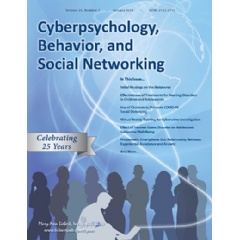There are far weightier consequences of the Omicron variant’s holiday-season surge than New York media types having to puzzle out the fate of red-carpet events.
And yet, that visible subset of the city has been tantalized by visions of a genuine spring awakening — assuming the fresh foot of snow ever melts. Covid numbers are continuing to improve by the day, and waves of industry events from February through May have returned to in-person plans after a prolonged period of limbo. Overall, the city still faces myriad challenges, among them an unemployment rate more than twice the national average and deep uncertainty about the return of tourism, office workers and international business travelers. Despite that backdrop — and, of course, the possibility of more Covid curveballs — the early months of 2022 are heading in an encouraging direction.
Movie awards season will get a jolt of energy as Oscar campaigning gradually resumes and two annually glitzy nights get back on track in March: the New York Film Critics Society and National Board of Review galas. On the TV front, ViacomCBS, NBCUniversal, the CW and Fox all confirmed a return to traditional in-person mode with their upfront presentations to advertisers in mid-May. Of that group, only Fox has opted for a new venue, with the others sticking with longtime Midtown Manhattan staples like Carnegie Hall, Radio City Music Hall and New York City Center.
WarnerMedia and Discovery are two notables poised to send out upfront invites — likely to one single gathering, assuming their $43 billion merger gets approved. John Stankey, head of WarnerMedia parent (for now) AT&T, signaled last week that regulators could sign off on the deal by the end of March.
The IAB’s Digital Content NewFronts, a week known for high-powered showcases by YouTube as well as a range of other digital and traditional media players, will unfold across the city May 2 to 6. The IAB is also holding its annual leadership meeting, with a number of high-level executive speakers, in person in early February, and a gaming event in April.
Film at Lincoln Center hasn’t yet confirmed detailed plans for New Directors/New Films, whose 51st edition runs April 20 to May 1, but the organization has had its repertory and commercial theaters up and running for months. Neighboring Lincoln Center tenant the Metropolitan Opera, by some miracle, managed not to miss a single performance, even as many Broadway productions were forced to alter their plans.
By the time the Tribeca Festival arrives in June (later than its usual late-April berth), the city could be basking in a new glow of not only actual warmth but a kind of public buzz-making not seen in more than two years. Last year’s Tribeca Fest was the first major North American film fest to hold screenings with audiences since the onset of the pandemic, but only opening and closing night were indoors due to Covid concerns.
For New York, more than most places on the map, Covid has been an odyssey. Initially the global epicenter of the pandemic, the city all but completely shut down in the spring of 2020 before crawling back to life. Movie theaters remained closed for nearly a year. Last fall, vaccines enabled major events like the New York Film Festival, Lincoln Center’s fall arts season and Broadway to lead a stirring cultural revival. Then, weeks after family gatherings for Thanksgiving, Omicron broke through just in time for the end-of-year holidays. Premieres, awards shows and conferences were abruptly postponed or canceled and a profound sense of déjà-vu prevailed.
This time, though, with many people leery of living life on a screen and “endemic” replacing “pandemic” in the collective vocabulary, the consensus was to buy a little time and then reactivate. One tailwind for New York City event planners has been the city’s vaccine mandate, the first enacted by any major U.S. city. Vaccination, masking and sometimes also testing have been put in place as requirements, but attendees by and large have seemed willing to jump through some hoops in order to escape their Zoomsday circumstances.
“We’ve seen, as the pandemic has gone on, the tolerance for virtual events has waned,” David Cohen, head of the Interactive Advertising Bureau, which stages the NewFronts. “The attention span has definitely changed. In the beginning, when it was a little bit of a novelty, people thought, ‘Oh, we can operate just fine.’ But people are fairly tired of that.”
Jo Ann Ross, head of sales at ViacomCBS, said the company expects a “show-stopping” return to Carnegie Hall for its upfront pitch to advertisers. While the company mounted substantive online presentations the past couple of years, none could match the showmanship of CBS (or Viacom, at its own New York events before the 2019 merger). Ross once took the stage at the CBS upfront in a digitally-illuminated dress bearing the timeless message, “YOUR AD HERE.” The network also mounted a fully produced musical reworking of Hamilton, tweaking the Broadway hit’s lyrics to indicate a quest to obtain advertisers’ dead-president-bearing cash.
“We live in a relation-driven, trust-driven business, and we are in the business of connecting buyers and sellers together,” Cohen said. “And while it’s perfectly fair to say that transactions can exist without in-real-life activity, it is far better to see someone before them instead of a virtual screen.”
At stake, of course, in the upfronts and NewFronts, is more than just the notion of returning to the social scene. Tens of billions of ad buys are in play, across linear and digital, with streaming and the potency of ad-free platforms like Netflix continuing to disrupt the landscape.
The IAB is eliciting a healthy level of registrations for the NewFronts, Cohen said. Fox and NBCUniversal have confirmed plans to present during the week of showcases, but the full agenda will be disclosed closer to May.
For those unwilling or unable to attend in person, though, one full day of the week-long NewFronts extravaganza is earmarked for virtual presentations. At the February annual meeting, attendance is expected to be 50-50 live and online, Cohen said. “The challenge that you have now as a conference producer,” he said, “is putting together an event that is as meaningful for those in the room as for those attending virtually.”
Note: This article have been indexed to our site. We do not claim legitimacy, ownership or copyright of any of the content above. To see the article at original source Click Here













